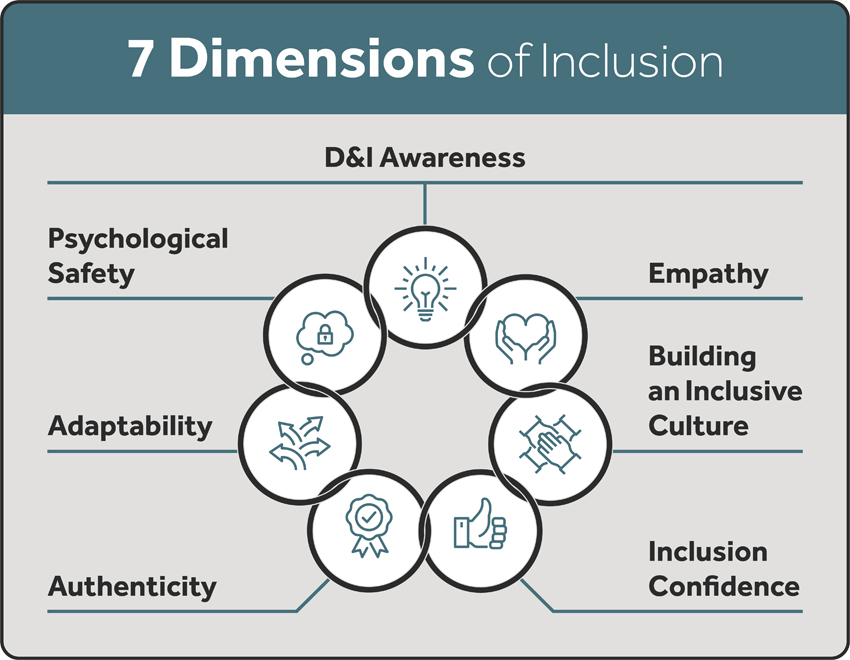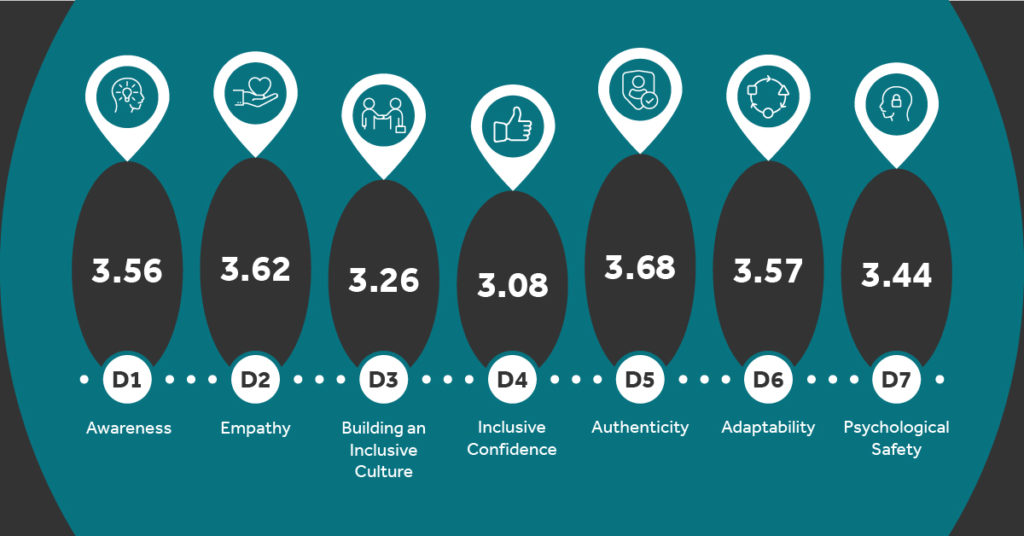In this week’s guest column, The Clear Company’s Director Jenny Hinde shares what inclusive leadership is, why inclusion confidence is a must-have skill for leaders to build a diverse and inclusive workplace culture, and how to harness it.
Any organisation pursuing a more inclusive culture without engaging leaders and building in accountability for leading the change, is making a significant mistake. Leadership engagement is a core principle of organisational and cultural change; yet it remains a key challenge around diversity and inclusion.
It is expected that every leader will be at a different level of maturity in terms of their diversity and inclusion knowledge and experience, therefore helping leaders to understand and analyse their skills around inclusive leadership is central to creating a more inclusive organisation.
INCLUSION MATURITY
Diagnostic tools are a great opportunity to provide leaders with a true picture of where they are on the diversity and inclusion journey creating a secure non-judgemental environment for further discussion and learning. Feedback from leaders undertaking the Clear Company’s 7 Dimensions of Inclusion diagnostic demonstrates just how impactful this individual/personal insight can be. Leaders often share that they have not thought of inclusive leadership in the context of the seven dimensions measured and knowledge of their maturity provides a good starting point to harnessing these skills to become a more inclusive leader.

Of course, the skills needed to create a psychologically safe space, to be adaptable and be authentic are often skills leaders use daily. But when considered in an inclusion context become increasingly powerful. Simply raising awareness of the importance of these skills in creating an inclusive culture clarifies personal responsibility and what inclusive action could look like for individual leaders.
Around 700 leaders from a wide range of industries have completed The Clear Company’s inclusive leadership programme; beginning with the 7 Dimensions of Inclusion diagnostic and the results clearly show consistently lower scores for inclusion confidence.
INCLUSION CONFIDENCE EXPLAINED
What do we mean when we talk about inclusion confidence? Inclusion confidence is related to the feelings and beliefs that leaders can trust, believe in, and be sure about. It is a state of mind marked by an ease and freedom from uncertainty, fear or embarrassment. Inclusion confidence is critically important as it provides the basis to take inclusive action rather than, for instance, avoiding having important inclusion conversations. Confidence also helps leaders to try again and be resilient when it comes to difficult situations or outcomes that turn out differently from what we anticipated.
Our experience tells us that most leaders – typically experts in their field – can find it hard to talk around a topic in which they have limited knowledge. It is clearly not possible for leaders to have an in-depth knowledge on the wide range of lived experiences across their teams and wider organisations; and therefore conversations about racism, menopause, ex-offenders or carers for example, can leave leaders feeling ill-equipped. Equally, inclusive leadership expands across managing teams, supply chains, delivering to customers, and leaving a legacy to communities. It is not surprising that leaders find it challenging.

HOW INCLUSIVE CONFIDENCE CAN MAKING A DIFFERENCE
The key therefore to inclusive leadership is helping leaders understand that it is the skills and behaviours they deploy that truly make a difference.Bbuilding knowledge and capability is, of course, important; however empathy and authenticity will allow leaders to be inclusive in most situations.
The 7 Dimensions of Inclusion delivers sustainable D& I change through behavioural transformation. A key element of each individual’s inclusion journey, our inclusion diagnostic equips all users to understand their level of D& I maturity. This includes:
- Highlighting strengths and uncovers areas for discussion and development that advance D&I awareness and self-awareness.
- Enabling self-rating and multi-rating perspectives for each leader.
- Every participant receives an in-depth assessment report.
- eEnables behavioural transformation through personalised development and coaching.

ABOUT THE AUTHOR
Jenny Hinde is a Director at The Clear Company. She has more than 20 years’ experience as an HR Director. Her most recent role as an HR Director of Amey saw her lead a successful Diversity and Inclusion agenda in the construction and engineering sector for 10 years. With a pan-diversity approach, Hinde is highly experienced in defining the business case, setting the strategic direction and implementing robust solutions to diversity challenges. At the Clear Company, she works closely with clients in the Engineering, Professional Services and Retail sectors; and has successfully developed and facilitated global inclusive leadership programmes.







































